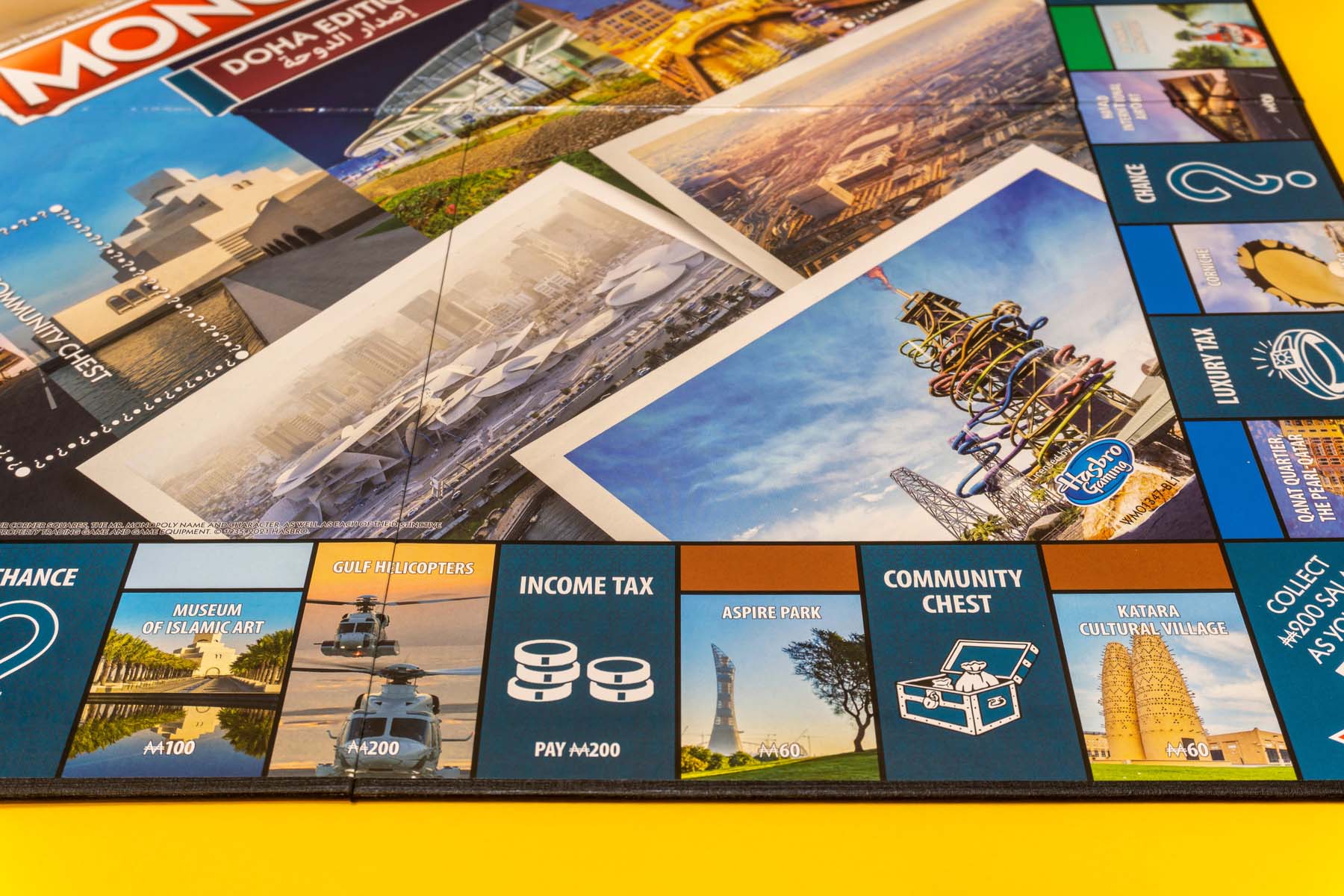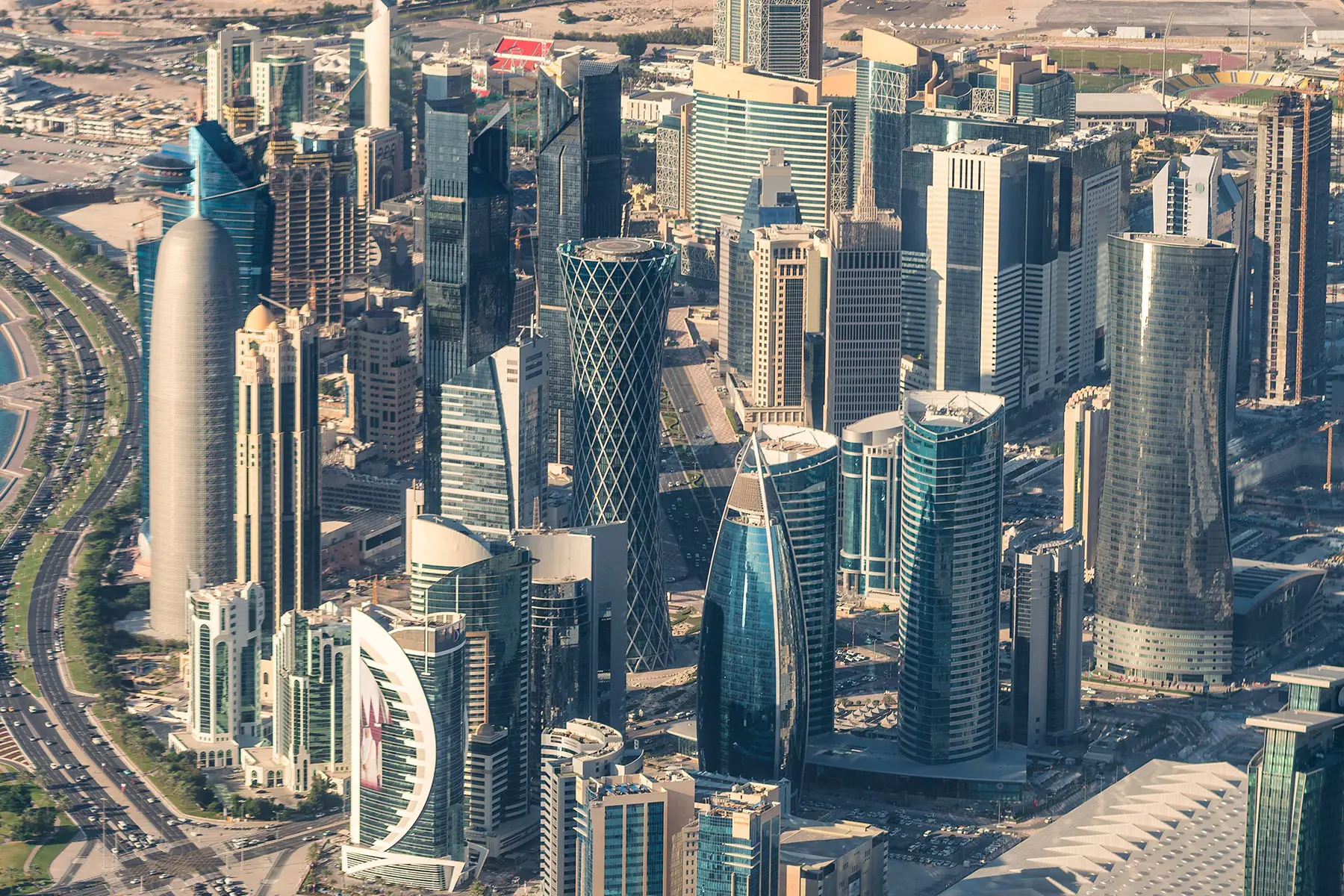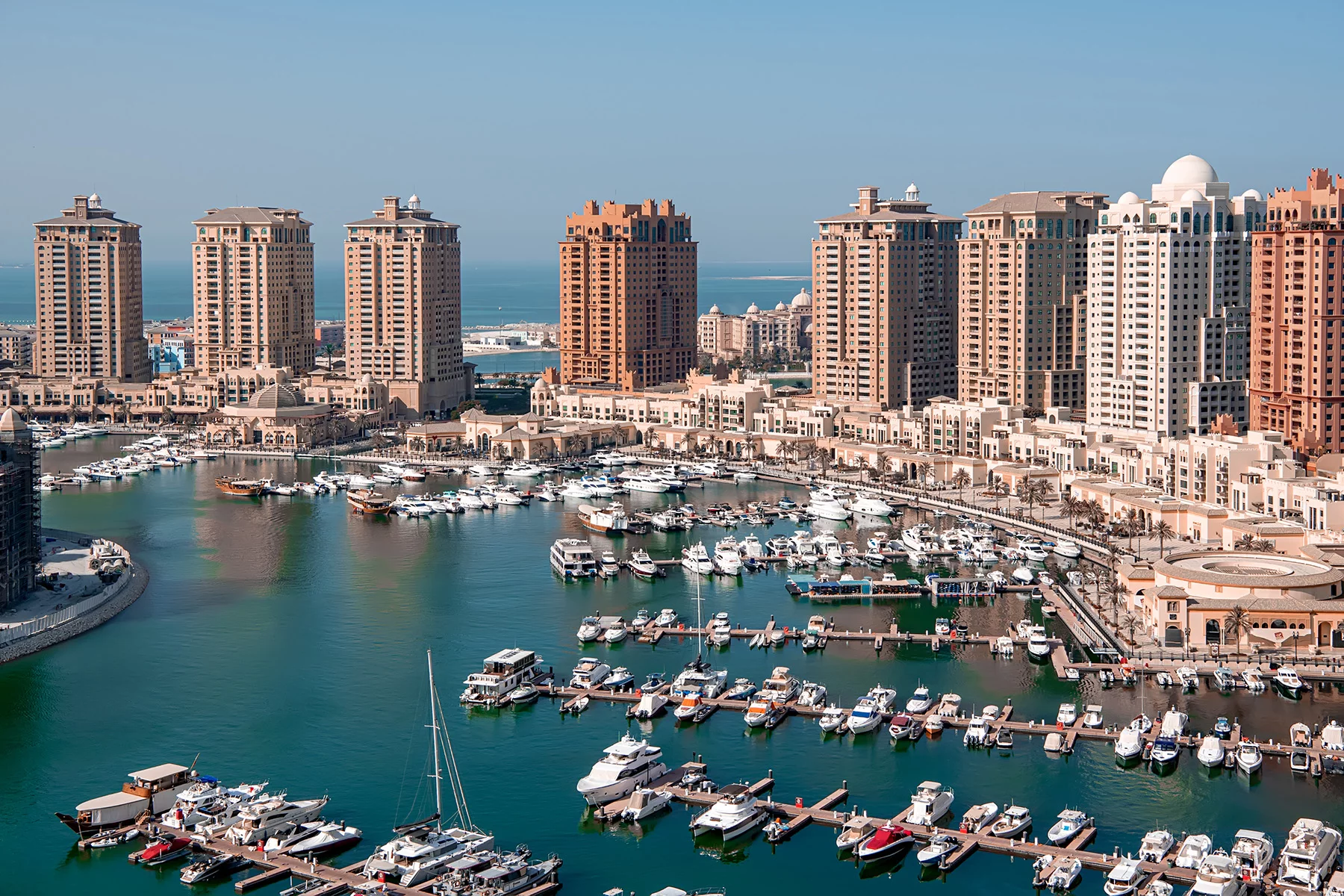Like its neighboring countries, Saudi Arabia and the UAE, Qatar does not collect tax on personal income, gifts, or inheritance. There’s also no value-added tax (VAT) in Qatar, though it is likely to be introduced soon.
However, there are several other taxes you might need to pay while living in the country, including withholding tax and capital gains tax. To help you understand taxes in Qatar, this article details includes information on the following:
The Qatari tax system
The General Tax Authority (GTA) is responsible for overseeing tax in Qatar. The tax year is in line with the calendar year, running from 1 January to 31 December annually.
The tax system in Qatar is territorial, which means that you are taxable simply if you make money in the country, regardless of your tax residence. However, with no personal income tax, no inheritance tax, no VAT, and no property tax, Qatar has relatively few taxes to pay.
That said, certain products deemed harmful by the Qatari authorities – including tobacco and most carbonated drinks – are liable for excise taxes and, therefore, more expensive.
Depending on your situation, you might also have to pay withholding and corporate taxes if you run a foreign-owned business that derives income from Qatari sources.
What is new about taxes in 2025?
Qatar’s 2025 Budget was approved in December 2024.
The biggest anticipated change to tax in Qatar – the introduction of VAT – has not yet come into force, although this may still happen later in 2025.
Qatar has also implemented a ‘global minimum tax‘ of 15%, effective from 1 January 2025. This is designed to ensure large multinational companies pay their fair share of tax. It will apply to multinational companies with foreign branches that have revenues exceeding QR 3 billion.
Who pays tax in Qatar?
Technically, anyone who makes money in Qatar is taxable since it’s a territorial tax system. However, expats are more likely to have to pay taxes since Gulf Cooperation Council (GCC) nationals are not liable for corporate income tax in Qatar.
You’re considered a tax resident if any of the following applies to you:
- You have a permanent home in the state of Qatar
- You have been in Qatar for more than 183 days in a 12-month period
- The center of your vital interests are linked to Qatar
How does tax work for expats?
While personal income is not taxable in Qatar, depending on your individual circumstances you may still need to pay tax in your home country.

As of 2025, Qatar has 84 double-taxation agreements in place with countries around the world. These countries include Austria, France, Hong Kong, and the United Kingdom, among many more. This prevents expats from having to pay tax twice on the same income, therefore encouraging more foreign investment.
For more information and a full list of these countries, visit the Qatar Financial Centre website.
Do I need a tax ID number in Qatar?
If you or your business has any taxable income in Qatar, you’ll need a tax identification number (TIN). You can register via Dhareeba, Qatar’s online tax portal, or at a General Tax Authority office.
Types of tax in Qatar
Income tax
Qatar does not levy income tax on individuals’ salaries, wages, or allowances. This is regardless of whether you’re an expat or a Qatari national.
Income tax for self-employed workers
Anyone who engages in commercial activity for profit in Qatar will have to pay tax, including self-employed workers. As the money you earn won’t be paid through an employer, but rather from your own business, you’ll be taxed in the same way as other businesses.
Self-employed workers who qualify for Qatari corporate tax pay a rate of 10%. Whether or not you’ll have to pay depends on whether the money you make is from a qualifying income source within Qatar.
Withholding tax
Non-residents may have to pay a 5% withholding tax if they’ve made money from services originating in Qatar. This rate is the same for individuals, self-employed workers, and companies. This could happen in instances where a non-resident has made interest from a Qatar-based investment, or if a non-resident is paid for services used in Qatar.

Withholding tax also applies to royalties, technical fees, commissions, and brokerage fees when they’re being paid to a non-resident.
You might not have to pay if you’re connected to a permanent establishment (PE) in Qatar since you’ll usually be issued with a tax card which will mean you don’t have to pay.
What’s more, the 5% flat rate can also vary if there’s a tax treaty in place with the country of your tax residency.
Corporate tax
Companies wholly owned by Qatari or GCC nationals are not liable for corporate income tax (CIT). The GCC includes Qatar, United Arab Emirates, Saudi Arabia, Kuwait, Oman, and Bahrain.
However, companies that are wholly or partly foreign-owned and have income sources in Qatar will be liable for CIT. CIT is usually a flat rate of 10%, but companies with oil and gas operations may pay 35%.
Employers must also pay social insurance for Qatari nationals, equal to 10% of the employee’s salary.
Capital gains tax
Capital gains derived by a non-Qatari company are added to its other income and taxed in the same way. In most cases, this is at a flat rate of 10%.
Investment tax
If you’re thinking about investing in Qatar as an expat, the good news is you’re unlikely to pay tax on investment growth.
Companies are not subject to dividend tax as long as their profits are already taxed in another way. Dividends from company shares are tax-free, and you don’t pay withholding tax on dividend income either.
Foreign companies that later sell shares in Qatar-based companies may be subject to Qatari tax – a rate of 10% is likely to be charged on certain capital gains
VAT in Qatar
While authorities have plans to introduce VAT in Qatar in 2025, it has not happened yet – so there’s nothing to pay for the time being. The anticipated VAT rate is 5%, like other countries within the GCC region.
It’s not yet clear which business will have to register for VAT in Qatar. Companies with turnovers below a certain threshold can often register voluntarily or gain an exemption in other countries.
Customs duties
Products imported from within the GCC region aren’t liable for customs duties. Otherwise, a tax of 5% is levied on most products imported from outside the region.

In addition, some products have higher duties, including:
- Records and musical instruments: 15%
- Pork and pork products: 100%
- Tobacco and tobacco products: 100%
- Alcoholic beverages: 100%
For more information, visit the General Authority of Customs.
Some goods are exempt from customs duties, including importation for military projects and importations of goods to be used by diplomatic bodies.
Property tax
There are no property taxes to pay in Qatar. However, the government may charge fees to register a property you’ve purchased. The buyer pays this fee – there aren’t any selling costs like stamp duty.
Landlords may also pay fees to the Ministry of Municipality for registering leases and contracts. This is usually 1% of the annual rental value of the property.
Note that expats can only buy properties in specific areas of Qatar, like The Pearl and West Bay Lagoon. However, once you do buy a property, you’ll get Qatari residence for as long as you own the property.

Inheritance tax
There are no inheritance, estate, or gift taxes in Qatar. This means you won’t need to worry about your heirs having to pay any taxes on the inheritance they receive, and there are no restrictions on what you can leave them.
However, it’s still a good idea to have a will in place. If you don’t have an heir living in Qatar, Qatari law applies to any assets you own in the country.
This means that any property, benefits, and financial rights are transferred to those who are entitled to inherit it. But, if you don’t have any beneficiaries that are deemed to have inheritance rights under Qatari law, your assets could be devolved to the state.
Payroll taxes
Qatari nationals automatically qualify for state-provided medical care, pensions, maternity pay, childcare, and unemployment benefits. Thus, employers must pay social security for Qatari employees.
The same does not apply to expats. Foreigners can access the healthcare system in Qatar, but don’t qualify for other state benefits.
Tax deductions and rebates in Qatar
There are several tax-deductible expenditures in Qatar. These include:
- Interest on some loans
- Charitable contributions
- Employee costs
- Some office expenses

In addition, Qatar Science and Technology Park (QSTP) entities can be fully exempt from Qatari tax. However, they must still file tax returns. The country also has Free Zones – if you set up a company in one of these, you pay no corporate tax or custom duties for 20 years.
Tax avoidance and evasion in Qatar
If you have a company, make sure to register it, as you could face a fine of QR20,000 if you neglect to do so.
The country also imposes the following penalties:
- Late filing of tax return: QR500 per day up to a maximum of QR180,000
- Late payment of tax: 2% of tax due per month up to full amount
- Not submitting annually audited financial statements: QR30,000
The ‘100% Financial Penalty Exemption Initiative‘ was introduced for a six-month period from 1 March 2025. This allows companies that voluntarily comply with their tax obligations to avoid penalties for late payments or submissions while they ‘regularize their tax status’.
Tax advice in Qatar
Those who are self-employed or who run a business in Qatar may want to seek independent financial advice on their business tax liabilities to make sure they’re paying the right amount of tax.
See Expatica’s directory listings of accountants and tax preparation services in Qatar for more information.
Useful resources
- General tax authority (GTA) – the government agency that oversees taxes in Qatar
- Dhareeba tax platform – electronic tax filing system
- PwC – detailed overview of taxes in Qatar



